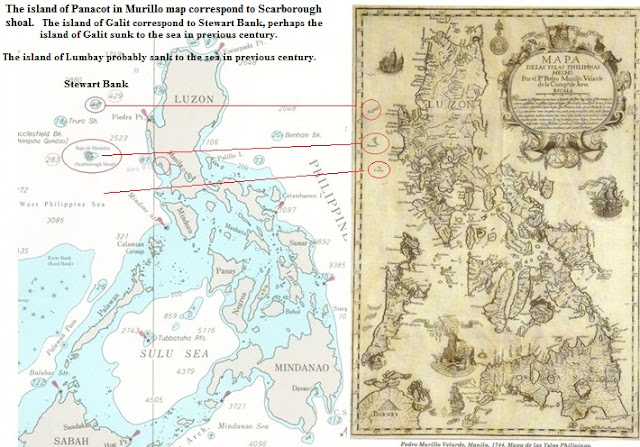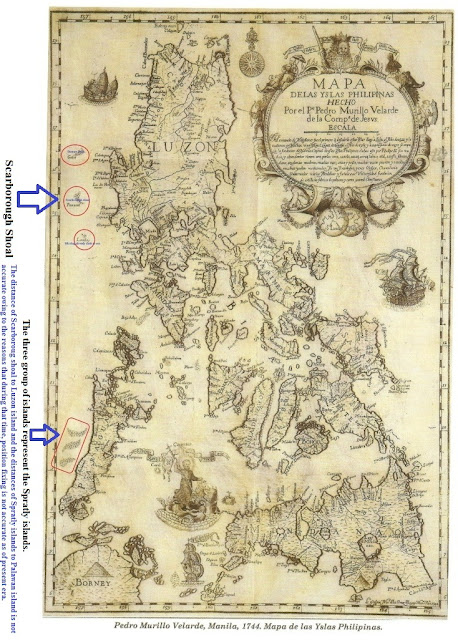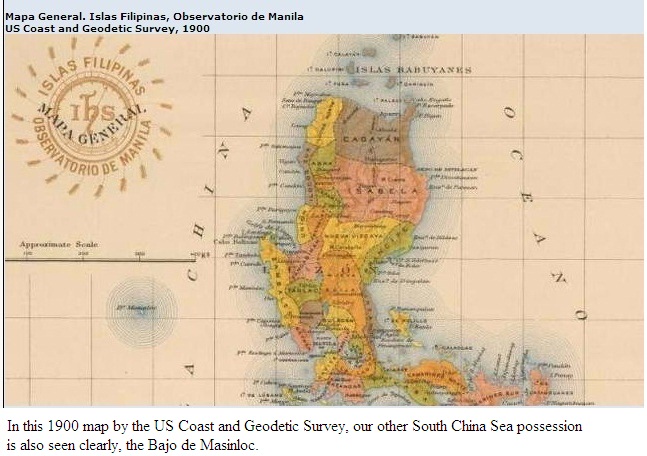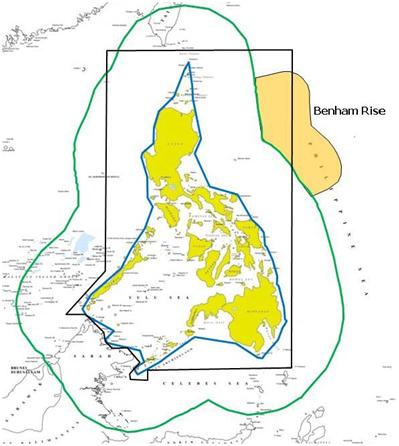Article about Victor Arches:
China’s propaganda war
By Rodel Rodis
Philippine Daily Inquirer
5:51 pm | Wednesday, May 16th, 2012
The most popular Filipino in China today is “a retired investment and merchant banker, a retired Certified Public Accountant, and a retired economist who loves to dabble in history and political science, among many other interests”. His name is “Victor N. Arches II” and he is the reported author of an op-ed article that appeared in the Manila Standard Today on April 28, 2012. The article, “It belongs to China”, has been reproduced in its entirety in hundreds, if not thousands, of print publications and online news sites all over China.
“Even Filipino admits Huangyan Island belongs to China!” is typical of the introduction to the article in English or in Chinese Pinyin character.
Just who exactly is this “Victor N. Arches II”? Ever since it appeared in the Manila Standard Today, I have been scouring the Internet to find out who he is anything but I found nothing. I could not even find a single Filipino with that surname. The closest I got was a “Victor Arch” from Indonesia who graduated from a university in Jakarta in 1994 but his postings in Facebook are in Bahasa Indonesia.
He could be a real person but if he had written an article in the past, it would surely have surfaced in the Internet. If he graduated from any college or university in the Philippines or if he ever worked as a CPA in the Philippines, his name would invariably have appeared somewhere in the Internet and a search engine would have surely tracked it.
It is also suspicious that he would use “II” instead of “Jr.” which is what most Filipinos are accustomed to.
My suspicion about the true identity of the author was also aroused by the style and substance of the article which was uncannily similar to the way Chinese articles have dealt with the subject.
Consider his opening paragraph: “The Scarborough Shoal does belong to China which discovered it and drew it in a map as early as 1279 during the Yuan Dynasty. Chinese fishermen, from both the Mainland and Taiwan, have since used it. As a matter of fact, Guo Shoujing, (the Chinese astronomer, engineer and mathematician who worked under the Mongol ruler, Kublai Khan) performed surveying of the South China Sea, and the surveying point was the Scarborough Shoal which is considered part of the Zhongsha Islands (renamed Huangyan Island in 1983). By contrast, the “old maps” being relied upon by our Department of Foreign Affairs in its spurious claim on the same territory were drawn up only in 1820, or 541 years after China’s.”
An article which recently appeared in the official China government publication, Xinhua News, entitled “Solid evidence supports China’s sovereignty claim over Huangyan Island” starts with similar information and was written in the same prose style: “In the 13th century, Emperor Kublai Khan of China’s Yuan Dynasty assigned an astronomer named Guo Shoujing to conduct a territory survey to unify the calendar nationwide, said Li Guoqiang, deputy director of the Research Center for Chinese Borderland History and Geography of the Chinese Academy of Social Sciences, a government think tank.”
Ironically enough, China’s claim to ownership of the Scarborough Shoal — based on historical maps — was debunked by the Philippines top Maoist, Jose Maria Sison, founder of the Communist Party of the Philippines, who described the claim as an “absurdity”. “This would be like Italy claiming all areas previously occupied by the Roman Empire,” Sison said.
It would be like Macedonia laying claim to the Persian Empire (Iran) based on a map drawn by Alexander the Great in 338 B.C. It would be like China laying claim to America based on an old map drawn by Admiral Zheng He, for Emperor Zhu Di, in 1421as described in the New York Times bestseller by Gavin Menzies entitled “1421: The Year China Discovered America”.
China can plant “It belongs to China” articles in Philippine publications but the Philippines cannot hope to have even one article published anywhere in China that questions China’s claim to the Scarborough Shoal or to the Spratlys. That is the decided advantage of a totalitarian dictatorship – which does not allow freedom of the press - over a democracy.
Writers from China can regularly post their comments in articles critical of China that appear in online Philippie publications such as this comment about my article which appeared last week (“Stand up to China or kneel and beg for mercy”

: “we don’t need Filipino care workers’ product too, we don’t know why Ph export to china more than china export to Ph and Ph earn much money from china do not use to Improve the people’s livelihood instead of oppose with china, how stupid Ph pigs, you can choose kneel and beg for mercy to USA, and you do, you are always the dog of USA, we don’t wanna feed you again.”
While the 1.3 billion people of China are unified behind their government’s claim to the Scarborough Shoal, the same cannot be said for the 100 million people of the Philippines at home and abroad.
In an interview with ABS-CBN Balitang America on May 8, San Francisco-based Racquel Redondiez, former Secretary-General of Bayan USA and current Gabriela USA Chair, said that her group would boycott the May 11 global protest against China because the dispute with China is just “a conflict between siblings or friends”.
“The China threat is being used by the U.S. to actually further trample on the Philippines’ national sovereignty,” Redondiez charged.
But Redondiez is mild compared to Washington DC-based Adolfo Paglinawan who has been apoplectic in his vitriolic denunciations of Filipinos critical of China’s intrusion in the Scarborough Shoal. In his email comments posted in various elists, Paglinawan has blamed the US Pinoys for Good Governance (USP4GG) for provoking China into imposing economic sanctions against the Philippines.
He has demanded that President Benigno S. Aquino (whom he derisively calls “Penoy”

purge his cabinet of officials who have been critical of China starting with Commission on Filipinos Overseas (CFO) Chair Imelda Nicolas because she is the sister of USP4GG national chair, Loida Nicolas-Lewis.
Paglinawan told ABS-CBN Washington DC correspondent Rodney Jaleco in a TV interview on May 11: “I would not be surprised if China files a diplomatic protest for the obvious conspiracy between the government and its fronts in foreign lands.” If China heeds Paglinawan’s advice, he would be China’s main witness against the Philippines.
Paglinawan’s cohort in Canada, Romy Marquez, described in his YouTube postings the May 11 protest of Filipino-Canadians in front of the China Consulate in Toronto as “less than two dozen marching in a circle” in a “lacklustre rally”. Marquez claimed that because of the low participation, the protest rally “failed to live up to its billing as a global protest”.
Marquez failed to understand that it was a “global protest” because there were simultaneous protest rallies against China on May 11 by Filipinos in cities all over the world, from Makati and Angeles City to Guam, San Francisco, Los Angeles, Vancouver, Chicago, New York, Washington DC, Paris, Switzerland, Ireland, South Africa, South Korea, Hong Kong and other world cities.
While the formidable challenge of China can be daunting and intimidating, I take comfort from an email message from a Philippine Science High School classmate, Vince Ragay, who expressed appreciation of our global efforts “applying an approach taken from Sun Tzu himself: gathering sympathy and support from neighbors and allies to pre-empt an enemy attack”.
“Yes, it can come to a bloody turn as it has done so in the past,” Vince wrote. “But I believe that God in Heaven protects our shores and our people. Just as David claimed victory even before he struck Goliath, we, as believers, can also claim the same victory we will have if we remain faithful and steadfast. It is not a mere test of our political, legal or military capabilities but also of our inner stability as children of God. Will God forsake His children when the infidels surround them? History has many lessons we still haven’t truly learned and applied.”
“We have friends and sympathizers within China, for certain. Prayers and protests may seem like incongruous twins in this issue; but I dare say that whatever the Lord has put in your heart to do on this matter, please do it with all of your might.”
China




 : “we don’t need Filipino care workers’ product too, we don’t know why Ph export to china more than china export to Ph and Ph earn much money from china do not use to Improve the people’s livelihood instead of oppose with china, how stupid Ph pigs, you can choose kneel and beg for mercy to USA, and you do, you are always the dog of USA, we don’t wanna feed you again.”
: “we don’t need Filipino care workers’ product too, we don’t know why Ph export to china more than china export to Ph and Ph earn much money from china do not use to Improve the people’s livelihood instead of oppose with china, how stupid Ph pigs, you can choose kneel and beg for mercy to USA, and you do, you are always the dog of USA, we don’t wanna feed you again.”









